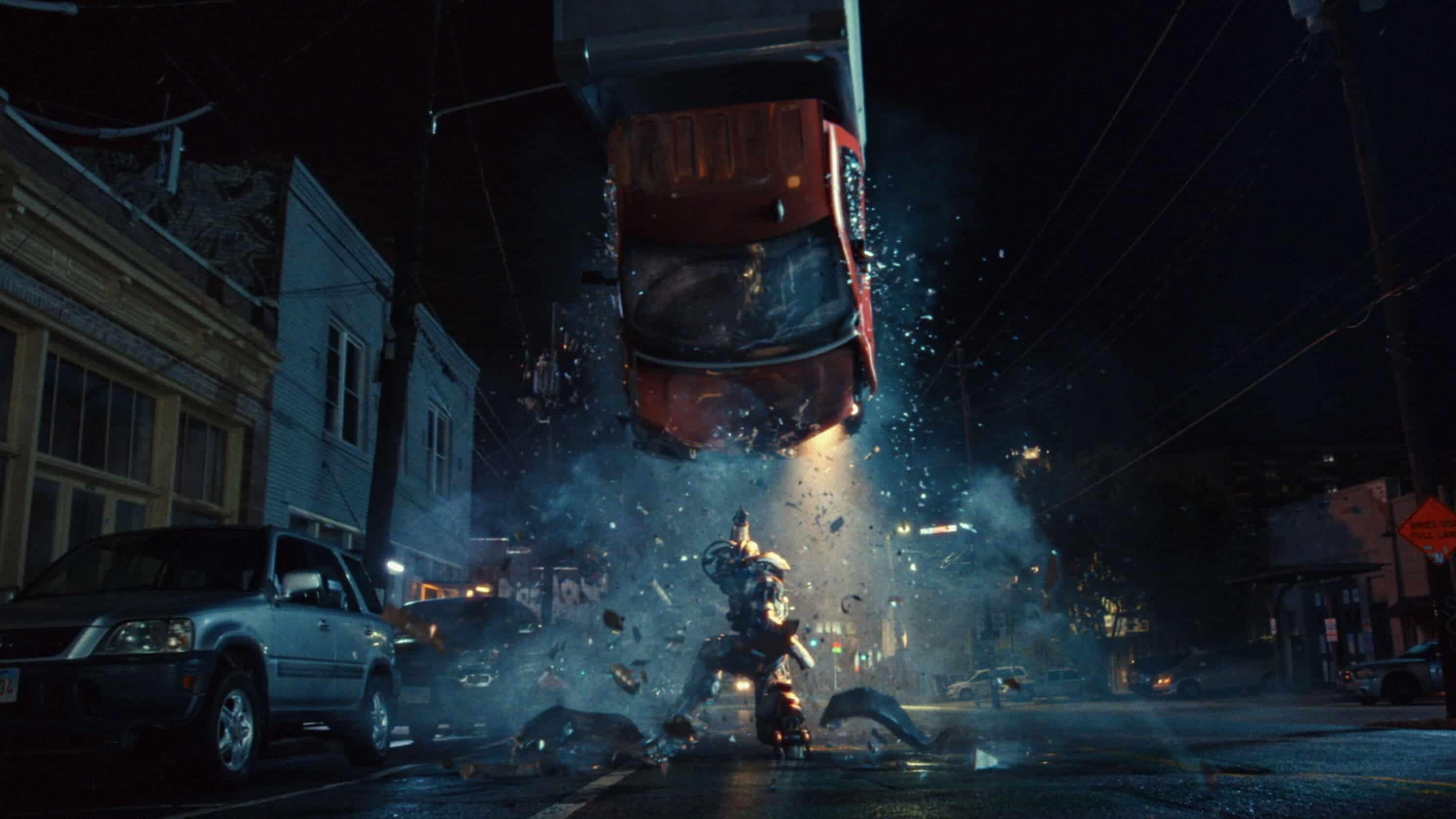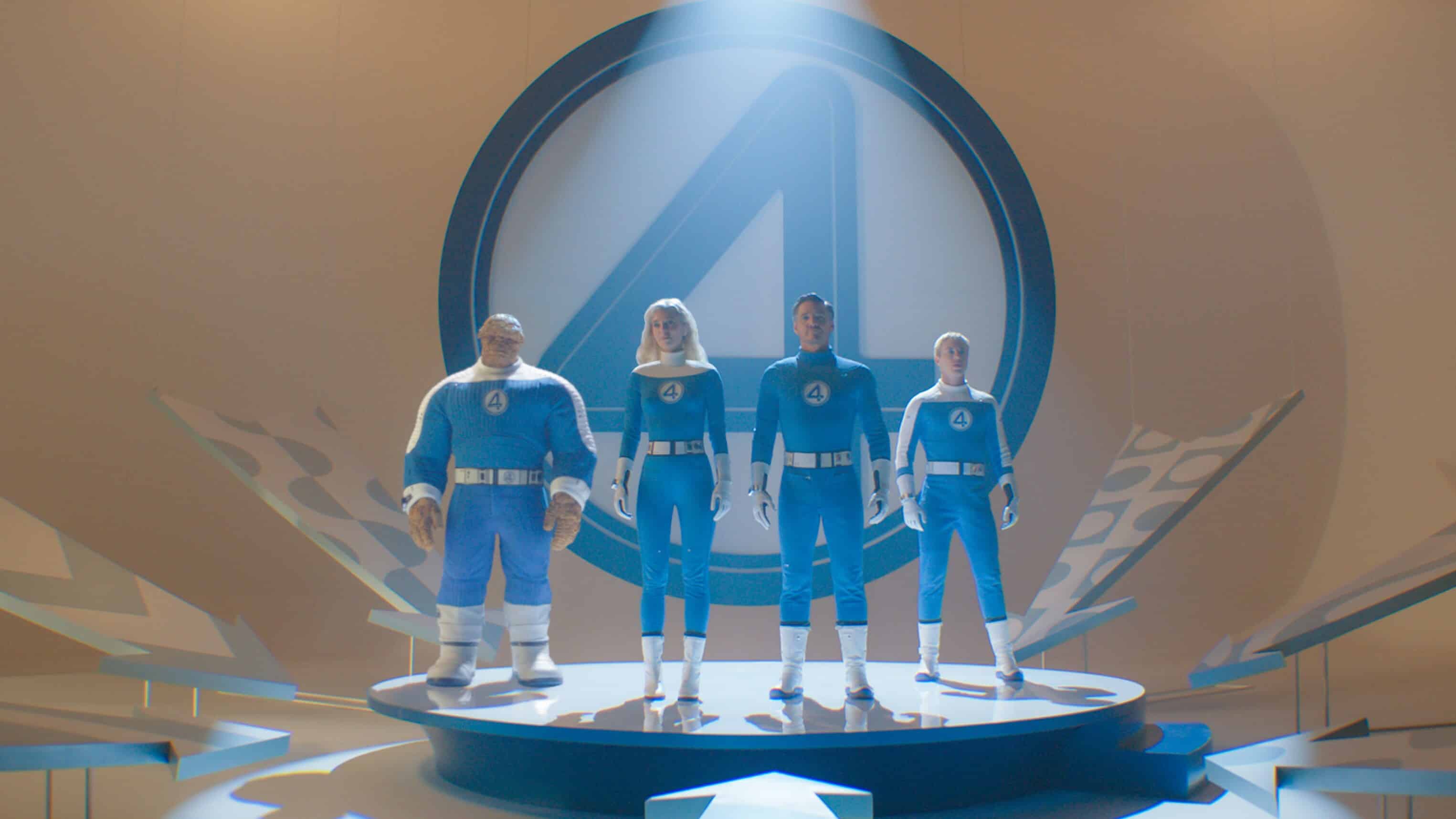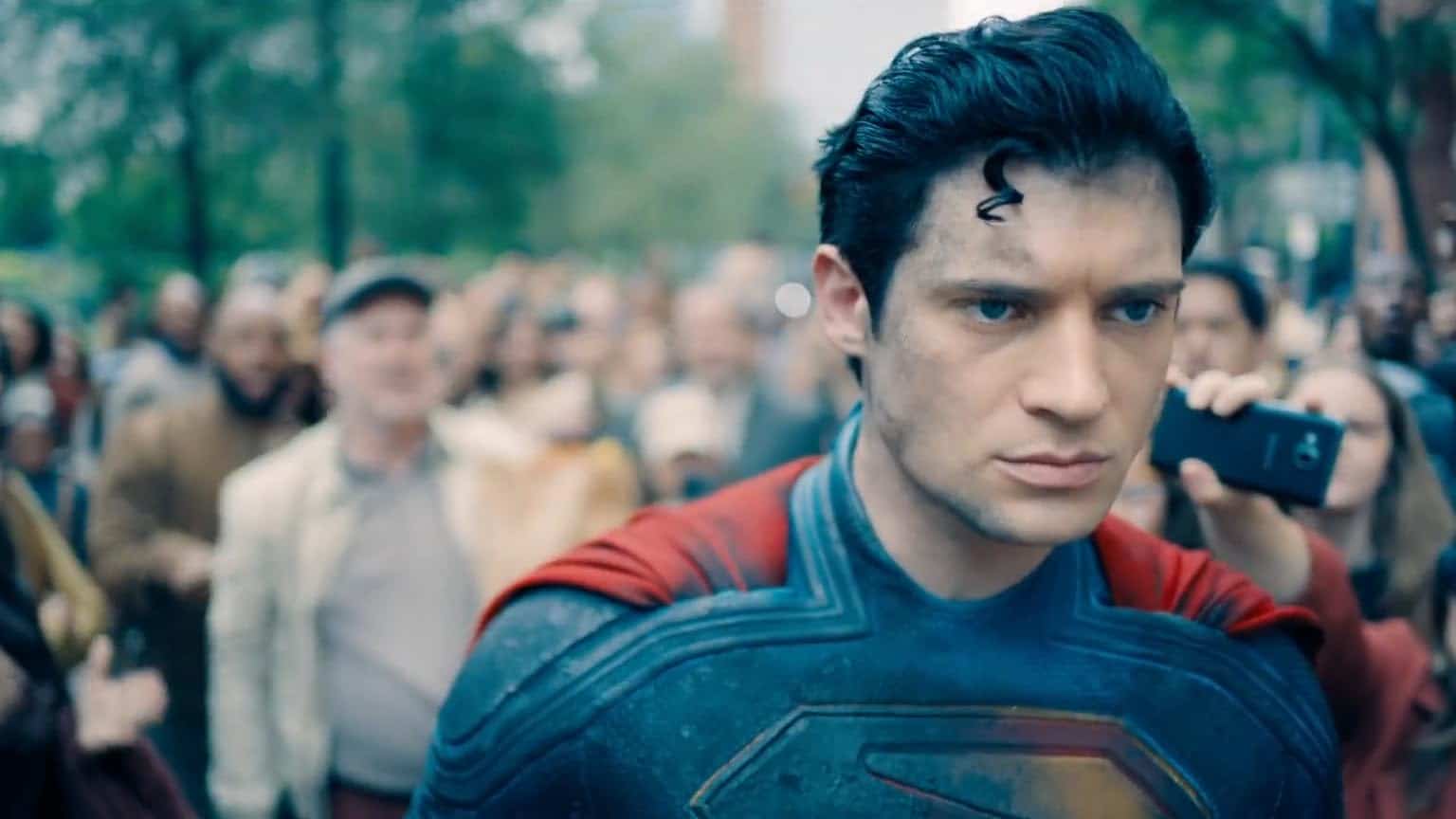Armaan Babu: It’s the end of the world as we don’t know it. The Rani has swept in, and wasted little time in making and unmaking reality, ready to tear the world apart just to find whoever she’s looking for. It’s a hell of an episode, and the most I’ve enjoyed the series in a while. What are your first thoughts, here on May 24th, 2025?
Margot Waldman: Thoughts sound a little bit like doubts, Armaan. And I don’t have doubts – oh no! I do! And I remember! We’re supposed to be reviewing Doctor Who!
And you know what? I had a lot of fun this week – certainly the most fun I’ve had this season. I think as the glow wears off I’ll find myself questioning what the hell I just watched, but the thing is that with Sutekh I was just sort of miffed. With the Rani, I’m absolutely enthralled and cackling madly like Archie Panjabi is throughout most of this episode.
As the shine comes off, I’d say that in some ways, the problems of this episode are the problems of this entire era – that it runs far more on spectacle than logic (it opens with the Rani turning a woman into flower petals – one could ask how, though I don’t think it’s worthwhile), that its social commentary does not cohere, that it attempts too much in too little time, that it’s done in the service of really esoteric, baroque, deep, deep continuity – but for once I don’t think those are problems. I don’t think it is a problem that this episode takes place in a heterosexualized hell of bowler hats and umbrellas that is also a world loomed over by giant spectral bone horse-dinosaurs. (Fossils, yes, but like … they’re a bit conspicuous for simple employment as metaphors, no?)
Does it make a lot of sense why our friend Conrad (returning from “Lucky Day” but far more palatable here in his role as an incipient godling than his prior turn as a streamer shitlord) would wish for a world with giant spectral bone horse-dinosaurs? I don’t think so. I admit I am not an expert in the far right of the U.K., but I don’t think that REFUK voters necessarily yearn for giant spectral bone horse-dinosaurs.
But that being said, you know what looks sick as fuck, even on my little iPhone screen? Giant spectral bone horse-dinosaurs. I want to say it one more time. Giant spectral bone horse-dinosaurs.
Armaan: They’re called Giant Horsie-saurs, thank you very much, or at least that’s what I’ll be calling them. But you’ve hit right on what makes this episode so great, even if the story doesn’t quite hold together. We talked in our review of “The Story and the Engine” about how storytelling matters just as much as the story itself, and this episode, for whatever faults it may have, does have some wonderful storytelling.
To my mind, this episode has three big stars — Archie Panjabi, Ncuti Gatwa and general aesthetics. I don’t mean to be glib with “general aesthetics,” so let’s talk a little more about that. This episode was visually gorgeous. The sets, the CGI, the costuming — they had a vision for this episode, and it was executed wonderfully. There’s big CGI in everything these days, and it’s rare that I feel a true sense of awe watching anything on television anymore. This episode’s Giant Horsie-saurs brought me just that — to say nothing of the giant bone palace.
It’s more than just the CGI, though. Attention to detail is everywhere. It’s in the cheery blandness of the ’50s-style disreality that the Doctor and Belinda are trapped in. It’s in the set design of the bone palace’s interiors. It’s in the costumes of the strange creatures manning the desks for the Rani. It’s in the way the end of the world bleeds the colors of the end credits right into the universe it’s tearing apart.
And it’s in the pacing. This era has not had a consistent handle on pacing. Some episodes it works great, with implied story communicated well in throwaway lines, glimpses and actions, while in other episodes scenes feel either rushed or bogged down by exposition. Sure, the expository scene at the episode’s end dragged for a bit, but it was held up by both Ranis’ performances. Rani and Mrs. Flood, coupled with the Doctor, turn what could have been a real slog of expository reveals into a scene with rhythm, into something that rises in tension at just the right beats, that kept things just fun, worrisome and intriguing enough to hold all our attentions.
Margot: The plot of the episode is really one of the most basic Doctor Who plots there is – The Doctor Has To Realize That Something Is Very Wrong In This Setting. I guess the first example of it is “The Daleks” or something, where we slowly learn there’s a reason why he’s so tired, why the vegetation is calcified rock, why the radiation levels are mounting – and I’m not sure it would be correct to say that this episode is really an elaboration on that theme, as impressive and entertaining as the episode is as a whole. I think it’s greater than the sum of its parts – and I won’t call that a negative.
As with so much in this era, it feels like Who’s supplementary material returning to the small screen. The Rani’s return is perfect fodder for comics or audios – as is the Doctor waking up to find himself an office drone at a UNIT turned overnight into an insurance concern. (I believe there was an 11th Doctor comic with more or less this premise, but the name escapes me just now.) The domestic focus, though, reminds me of one of my favorite and wildest Doctor Who stories ever, Robert Shearman’s “Punchline,” where a character Legally Not The Doctor finds himself with a perfect sitcom family that slowly ebbs away because it is simply nothing, just so much emotional candy that ultimately leaves the Doctor – er, the Dominie – with nothing so much as a very upset stomach.
Only this is the Fifteenth Doctor – and it’s not a perfect sitcom life, it’s Conrad Clark’s miserably imperfect idea of a perfect life. The viewer is trusted to see its flaws early on, once we see the Doctor as “John Smith” as a figure of disgust and scorn for a vague expression of queer desire and the rigid regimentation of gender roles. (Kate Lethbridge Stewart, now an icy office worker, is to be “saved” from her professional life, while Belinda is reduced to a link in a chain of maternal production, only to begin to realize what has been stolen from her in one of the episode’s most haunting sequences.)
Armaan: It’s not a novel concept that we’re presented here. A man whose mission is to explore all of time and space is boxed into an outdated idea of society where roles are rigidly defined, where there’s a certain way things are meant to be, where you’re told happiness can be yours if you just don’t look too closely at the cracks in the pavement.
Which is right where the show brings in a concept that is novel, and I greatly appreciated how the episode pulled it off.
Margot: Right! We quickly recognize that, as in any good dystopia, its flaws are our own society’s flaws distorted and intensified – and then we learn, once the Ranis makes their grand (and delightfully campy) entrance, that these flaws which go too, too far, the gaps and creaks and crevices in this utopia-manqué, are the point. I like that – that’s new, that the ways in which a setting doesn’t work are why it exists in the first place. Conrad, babysitter, god and moral censor, has been employed by the Ranis for precisely the things about his society that go too far, that one simply can’t take for granted.
Armaan: It’s delightfully wicked. Trapping the Doctor in a box he can’t help but break out of. We know that if the Doctor is put into a box, he will break out of it. This is a world meant to foster paranoia and misery, to hem the Doctor in, not to trap him, but to force him to tear this false and miserable world apart with everything that he has — and it’s not just the Doctor. The Rani is measuring the doubts of everyone — though her world severely punishes those who doubt, rebellion to such a rigidly defined world is inevitable — and it’s the fight the Rani wants. The chaos of a false world being torn down is just enough power to tear everything down. It’s a brilliant concept, all the more brilliant for being introduced right at the end of the episode. It doesn’t wear out its welcome, the Rani wins as soon as she reveals her intentions, weaponizing one of the Doctor’s greatest strengths — his doubt — against himself.
Margot: Weaponized doubt – I like that. I like it a lot. The challenge, I think, with a Doctor-turned-human episode, is to avoid the maudlin. “Human Nature” / “Family of Blood,” probably my favorite first Russell T Davies-era story, comes close to this by the end with a little montage of the could’ve-been-life of that “John Smith,” even as its harsh reminders of the cruel and stupid bigotries of Edwardian England (carried as contraband into the grammar of Doctor Who itself) sober it. Here, we never have it for a moment – this 2025 is nothing so much as a Finetime with even more in the way of privilege and oppression, as Ruby Sunday, in her role as Martha Jones traveling the dominated Earth, discovers.
Here might be the weakest part of the episode – the under-class of this society, the people Conrad was simply unable to think about for too long when he schematized his dream world, the queer and the disabled. Shirley from UNIT is back, leading a plan to “bring down God” – I always liked her, and this is why. (I hope the Vlinx is OK, come to think of it). This is good doubt, healthy doubt – doubting why things are the way they are, doubting why certain people are on top, as opposed to Conrad’s nihilistic belief that he and his values are the only ones that could ever matter. I wonder where RTD sees himself in the Wish World – is he like Mel, tersely tolerated by Conrad Clark’s society of polite heterosexuals, or is he with Shirley in the tents and boxes? I’m not sure I can say – for all his grand, wonderful ambition and willingness to see further, Davies is a man of a certain age and a certain description. It’s wonderful that he gives voice to these voices – but as any fan can tell you, he’s never done so perfectly. He doesn’t do so here – but it’s only one aspect of what’s exploding out into something massive.
Armaan: I agree that this one of the episode’s weakest sections. RTD tries for social commentary. It’s not been good commentary. It’s not something that has had much to say. Racism exists. Ableism exists. Prejudice exists, and some people’s lives are made worse by the people who don’t see them. The show rarely has much it wishes to explore beyond shining a brief light on those simple concepts. That being said, one of the throwaway concepts I enjoy here is the idea that the disabled become literally invisible because the man behind the wishes is an able-bodied man unable to see people in society that don’t fit into his worldview.
Margot: It’s a great idea and, look, I’m always in favor of attacking and dethroning God – especially as the Wish World’s theological surreality trickles away with each broken mug’s sliding through the table (another great set piece). When we finally meet that god (or Metatron, maybe), it almost doesn’t matter if you’ve ever heard of the Rani before – a few clips of the old show reminds us she exists, that she’s camp, that she’s a baddie. What else is there to know? The mystique is the mystique, and I think Archie Panjabi has a lot of wonderfully silly mystique – this whole world, she hisses, is a wish, and the syllable goes on for so, so long. It’s wondrous. Her castle is a great triumph of spectacle – her optometric robots measuring doubt like an eye chart are wonderfully creepy and strange. When the Macguffin is revealed — the Vindicator was apparently evil or something; I don’t know and neither you nor RTD do either — it doesn’t matter so much that it’s a ridiculously deep cut from 1973.

Yeah, I can’t believe we’re bringing this floppy motherfucker back, but why not? The adventure has been wonderful this week, and I’m more than excited for its conclusion next time. If this is the show’s conclusion, too – well, it’ll have gone out on a pretty high note.







